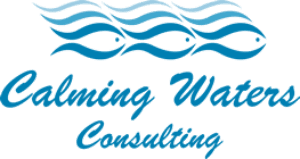Corporate Millennial Trainings
Corporate Millennial/Generation Z Training
Corporations worldwide are trying to adjust to changes in the workplace brought forth by the newest two generations of workers – the Millennials and Generation Z (this generation is loosely being referred to in the media as Generation Z but has not been universally titled yet). Wikipedia distinguishes the Millennial Generation as born between 1982 and 2004 with Generation Z beginning in 2005. However, other thoughts are that Generation Z began at the end of the Millennial Generation in 1995.
Although there is some conflict on the years that depict Millennials and Gen Z, there is certainly a change in the work-force to accommodate the changing visions, interests, and strengths of the two newer generations. Either way, the workforce is changing due to the increase in these two populations in American companies.
Millennials are often seen through some very discouraging characteristics including:
● Entitled
● Unable to communicate due to being “glued” to their devices
● Opinionated
● Instant gratification
Many of their strengths are over-looked when being brought into an established workforce:
● Seeks challenges
● Flexibility
● Networking
● Electronic multi-tasking
● Self-assured
● Goal-driven
Generation Z is also attributed with some negative characteristics including:
● Difficult to work with
● Entitled
● Lacking relevant experience
However, I look at the strengths of each group and see these possibilities to add to your workforce:
● Tech savvy
● Adaptability
● Social media opportunists
● Collaboration
● entrepreneurial
Eighteen years of incorporating therapeutic insights into communication, personalities, and skill-building will enhance your organization’s ability to bring out the strengths of your workforce and gain the most from the diversity of the new generations into your established staff. Once you share what your organization’s specific challenges in the workforce are, I will analyze your organization and build a customized program to meet your needs through trainings, group projects, and skills-training exercises.
Additional Corporate Trainings
Addiction in the Workplace Training
This training will assist middle and upper-level management in identifying employees who may need help with their struggles in using substances. The training is focused on how to:
• Identify the issue
• Build an effective Human Resource Policy to address substance use
• Protect the company
• How to offer assistance to the employee to support them instead of sanctioning disciplinary actions
Effective Communication Workshop
One of the most wasteful uses of company resources is time. Effective communication among your employees can dramatically reduce wasted time and effort by teaching 10 Levels of Communications. Workshop participants will be given real-life scenarios and will use these scenarios to learn the levels of communication and demonstrate efficient use of such. Additionally, participants will learn about verbal communication, non-verbal body and facial communication, and written communication through emails, text, and social media.
Corporate Dynamics and Assessment
This training is combined with a thorough investigation process of the working dynamics of the organization, both positive and negative, and a comprehensive report of findings that will gear towards an individualized corporate training to meet your specific needs. This training offers the corporate leadership the ability to ascertain specific needs and to address those needs to make a stronger, more cohesive, team environment.
5 Tips for Managing Millennials in the Workforce
1.Millennials are known for their expertise in electronic devices. Use this expertise to encourage research, outreach, and connection with organizations you do business with, or would like to connect with on a professional basis. Putting a millennial employee in charge of this potential addition to your current professional outreach, will enhance the employee’s enjoyment of their work and will reward you with their enthusiasm and skill.
2.As a group of employees who have excelled in having numerous points of stimuli directed at them at any given point in time (think how many things are happening each moment on a video game), Millennials and Gen Z employees may be bored when placed at a task that requires sustained attention in one redundant task. Instead, provide short projects by breaking larger projects into smaller segments and assigning them separately. This will allow the employees to feel accomplished, much like older generations like marking items off written to-do lists.
3.Speaking of multiple stimuli, Millennials/Gen Z enjoy a variety of interests and want the freedom to enjoy them including travel, hobbies, family and friends, and work. Therefore, a flexible work schedule may enhance their feeling of autonomy – which is a vital part of their character.
4.Let’s just call this tip what it is – fun. Ignore the Millennial’s need for fun, and you will wonder what happened as you receive their letter of resignation. Find ways to incorporate fun projects into their work, set up job enhancing rewards such as team building through ropes courses or extra time off, and encourage laughter and a carefree work place. Work doesn’t need to be serious to be productive. Millennials have figured this balance out, so take cues from them and add some laughter – your whole workforce will benefit.
5.The team approach to work is where Millennials will flourish. However, it may not look like the Baby Boomer’s (1946-1964) or Generation X’s (1965-1981) version of a team approach. Lengthy brainstorming meetings are a thing of the past. Shorter, structured meetings where each individual feels a part of the process, listened to, and respected for the strengths/knowledge they bring to the meeting, are the most effective ways to stimulate effective participation.
